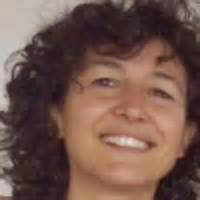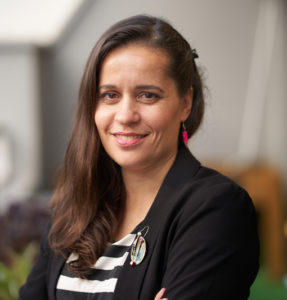The Flow Game is a powerful tool for companies, teams and leaders who decide to take advantage of these moments of uncertainty to connect with what is most essential, spend time around significant questions, deeply explore blockages and difficulties, generate clarity about decisions to be made. In short, turn difficulties into opportunities.
Although it’s called Flow Game, it is not a game like chess, with winners and losers, it is more like the kind of play we find in Lego, where something new is made.
The Flow Game is based on a set of methods and processes, around the North American Aboriginal Medicine Wheel. Use powerful questions and images through the cards, reflection and interaction between the participants. Serendipity or chance also intervene, through the use of the dice, and the facilitation of the Flow Game Host with their coaching and hosting skills.
This moment of COVID pandemic is a challenge to the whole of society, as well as to leaders of teams and companies. Old ways of responding are not appropriate, what is needed is another way of leading supported by trust in the Emerging Strategy, (a strategy which emerges from a situation rather than being imposed on it).
The Game allows you to target specific issues you have, like:
How can we innovate in products and services, how can we take advantage of the situation, how can we reinvent our best version, etc.

In summary, the Flow Game can be useful to:
- Align the team around meaningful questions and set priorities
- Deeply explore blockages and difficulties
- Generate clarity and set in motion what needs to be promoted, a project, a decision about the future of work.
But in addition, individuals can feel empowered through sharing experiences and ideas and participating in creating new strategies. As a tool of Participatory leadership, based on the premise that each person contains an entire universe. Each member of our teams is more than a piece with a specific role in the organization, he or she can offer much more. The Flow Game can harness collective experience and intelligence.
How does a Flow Game session work and what does it consist of?

You can play as a team or as an individual.
Each game can be adapted to the needs of the team and also to the number of participants (it can vary from 4 to 50). It can be online or face-to-face.
The structure of the game for a team is as follows:
- Preparation phase: The Flow Game Host explores the need for the equipment and works until it finds the driving question.
- Game phase: Between 2.5 to 4 hours long. The facilitator creates the proper framework and context to flow with the principles of deep listening, respect, non-judgment, and confidentiality.
- First round with a deck of team cards, everyone who participates contributes to the common question. This round can end with a small “harvest.”
- Second round with a deck of personal cards in which each person in relation to the common purpose asks what their best contribution can be.
- Final phase or check-out: What do you take with you? And what has happened to you since the beginning of the game?
- Harvest Phase: Throughout the process, a graphic facilitator will record the main questions, findings, discoveries and conclusions that emerge during the game visually. All the information will be collected in a document that will be shared with the team after the session to reinforce the learning.
SenseTribe regularly organizes Flow Game sessions with facilitators with extensive experience in the area. If you are interested in organizing a session or have more information, do not hesitate to contact us.
History of the Flow Game:
More than 20 years ago, a group of professionals, people committed to the environment, participation and peace, began to wonder about the need to create useful tools to train leaders in a type of leadership according to the future that they would like to achieve. This is a true story, these people were meeting in Denmark for almost a year, exchanging ideas, tools, reflecting on new paradigms, and when they believed that they were approaching the design of the best training for Leadership, they discovered that what was emerging was something else: It was a game! A game that had to be taken very seriously, as it concentrated powerful ingredients to bring clarity and be able to make important decisions, activating individual and collective wisdom and awareness. Flow Game had just been born!

In 1998 they had the first Flow Game prototype ready and it was played for the first time in San Francisco in 1999. From the beginning the game was designed to be facilitated by a “Flow Game Host”, it could be played individually or for a group. Since then it has been played in many different contexts and on all continents of the planet, for individuals, small groups, large groups, for leaders of large companies, with employees, in personal development sessions.
General information:
SenseTribe regularly organizes Flow Game sessions with facilitators with extensive experience in the area. If you are interested in organizing a session or have more information, do not hesitate to contact us.
Duration: 2 hours
Language: Spanish / English
If you want to organize a group on a specific date, contact us: info@sensetribe.com
Who is this workshop for?
Flow Game sessions are intended for both individuals and teams.
Facilitators:
 Mariana Ruiz Lobera: Sociologist and facilitator of participatory processes.
Mariana Ruiz Lobera: Sociologist and facilitator of participatory processes.
Extensive experience in training and facilitation in large companies (Iberdrola, Atresmedia), NGOs (Greenpeace, Doctors of the World, Action against Hunger). He teaches at the Autonomous University of Madrid on Participatory Leadership, Collective Intelligence and Conflict Resolution.
www.marianaruizdelobera.org
 Marina Roa: Visual thinking and facilitator of creative processes
Marina Roa: Visual thinking and facilitator of creative processes
Marina has extensive experience designing processes that bring us closer to collaborative, innovative and sustainable solutions. Graduated in Psychology and Superior Technician in Design, certified in creative thinking and passionate about non-violent communication.

